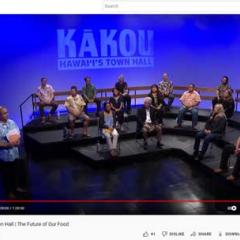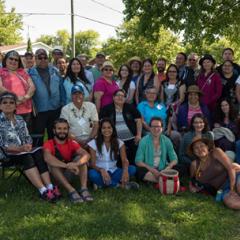About Noa's Work
Noa Kekuewa Lincoln exhibits a passion for life that keeps him energetically engaged in a broad range of communities. Born and raised in Hawaii he connects strongly with the Hawaiian culture, which places environment at the core of human well-being. This cultural value has become the backbone of his professional and academic accomplishments, and the guiding principle that he brings to all. Growing up he received unique training in Hawaiian ethnobotany, language, and history. Traditionally he has worked in marine and terrestrial ecosystem restoration and conservation around the Pacific, particularly with indigenous Polynesian groups. His efforts are always coupled with cultural and environmental education and community engagement. Along these lines he has engaged in research focused on coral reef reproduction and mortality, biodiversity enhancement in forest ecosystems, large and small scale restoration on private lands, and cost-benefit analysis of conservation efforts. Over the past many years Noa has increasingly engaged with large landholding organizations to perform analyses of land asset allocation. Bringing together concepts of decision analysis, ecosystem services, and economics he has provided consultation for a number of significant organizations. By synthesizing rigorous technical data, social values, and anticipation of future issues management decisions are interpreted for influential players. Examples include include “Assessment of Water Resources and Suggested Tribal Water Strategy” produced in 2006 for a tribal corporation in New Zealand, “Carbon Measurement Technologies and Risk Management Strategies” produced for the EDF in 2008, and “Strategies for Engaging in Culturally and Ecological Sustainable Tourism” produced for the Bishop Estate in 2007. His recent engagement in Hawaii's agricultural sector has led to a broader look at the intersection of land use, culture, and economics. Research interests examine combining traditional and modern knowledge of land management to evaluate corporate and policy decisions from a social utility, rather than an economic, basis.






